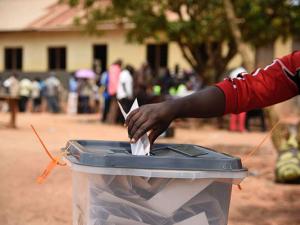
Uganda grappling with a ballooning electoral budget without corresponding reforms
The newly released electoral roadmap leading up to the 2021 election has been met with criticism as the cost of electioneering continues to rise while the ruling government remains reluctant to act on longstanding concerns for electoral law reforms.
Going by Electoral Commissions’s (EC) strategic plan released this past week, the deadline for the government to come up with electoral reforms expires in February 2019.
The EC requires that any legalisation be enacted two years before the next general election to give ample time to plan and implement its activities.
It also argues that for its plan to materialise, each stakeholder should play their part while government should not create new districts effective August 2018.
With only a month to go to the reforms deadline, even the Supreme Court’s orders of March 2016 that the Attorney General should come up with reforms within two years are unmet. The two years ultimatum expired on August 26.
“There won’t be time to amend any law. Parliament is going on recess and when MPs return, they will start handling the budget process as per the Public Finance Management Act. That process will go up to May, 2019. It is unlikely that there will be any consideration of any Bill during that time,’’ said Semujju Ibrahim Nganda opposition chief who spokes for the Forum for Democratic Party.
“The strategic plan seeks to leverage on the innovations and reforms introduced during the last general election address the challenges that were encountered,” reads the EC roadmap plan.
Presidential term limits
The civil society and the opposition had hoped to introduce provisions that would restore presidential term limits and trimming of the president’s powers in appointing the chairperson and five other members to the Electoral Commission.
It was hoped that the opposition’s proposition would be incorporated in the government’s Bill, but if that failed, a private members would be tabled before the house.
The public now expect inconsequential revision of Local Government Act or Parliamentary Election Act that will mostly look at issues of how much fees contenders will pay, procedural amendments and polling stations.
The cost
The EC expects a funding of Ush1.50 trillion ($406.26 million) to cover all its expenses running to 2022.
The EC however is set to carry on with one of the most expensive elections.
According the EC Chairman Justice Simon Byabakama Mugyenyi, the EC;’s budget has short up in view of expanded districts, increasing number of voters current standing at 19,4million up from 15.3 million registered in 2016. Other factors affecting the costs are inflation.
“This is quite a cost especially for a struggling economy…. The plan imposes a heavy burden on the country’s resources with little safeguards to guarantee cleaner and credible elections come 2021.
Breakdown
Presidential, parliamentary, local government and local council elections will cost up to Ush812.37 billion ($220.02 million).
On the other hand, administrative units (Local Council I&II) and women councils and committees election Ush55.77 billion ($15.11 million), Wage bill Ush219.63 billion ($59.48 million) and general finance and administration and capital development expenditures will cost Ush414.72 billion ($112,32 million).
